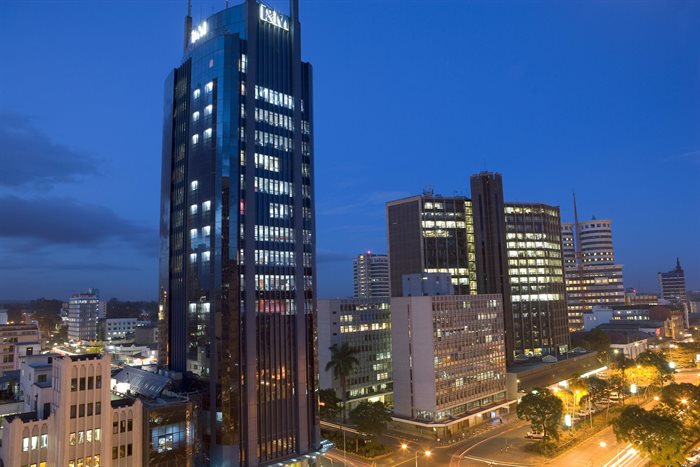
Source: Gallo/Getty
For investors navigating the 54 countries and relatively opaque market – only a few provide key economic and business data – the landscape is changing, providing greater clarity, visibility and opportunity.
The unique laws, policies and political environments that comprise the 54 sovereign states in Africa have been undergoing a shift over the past few years. Many countries have adopted policy reforms designed to transform and improve the legal and regulatory environment with the goal of stabilising their economies and attracting investment.
With this focus, alongside other factors, there has been a shift in foreign direct investment (FDI) statistics. In 2017, FDI amounted to $27.7bn and increased to $31bn in 2019, an increase of 7.0%. Of course, 2020 saw a decline of 6.0% on average across the region due to the global Covid pandemic. It has since averaged at 2.0% over the past three years.
Diverse economic environment
“Africa boasts 29 stock markets and remains one of the most attractive investment destinations for emerging market investors,” says David Morris, CEO for CBRE Excellerate. “The continent is a diverse economic environment.”
According to the report, the gross domestic product (GDP) growth for Africa sat at an average of 4.0% in 2021 and is expected to return to that in 2023 with a slight dip down to 3.7% in 2022. This GDP growth is higher than the global average projection for 2023 at 3.8%. Poverty and infrastructure remain a challenge, but there are signs of improvement, albeit slower than is required, as seen in the average GDP per capita. This indicator has improved from $1,501 in 2020 to $1,645 in 2021 when compared with the world’s GDP per capita that increased from $10,936 in 2020 to $12,262 in 2021.
“The report also unpacks the demographic changes on the continent with a projected increase to 2.5 billion people by 2050, an increase of 1.1 billion on 2022,” says Morris. “This demographic breakdown underscores the value of the African market. It is set to become the most important consumer market and labour supplier in the world with a very young population that’s expected to almost double from the existing 455 million in 2020 to 845 million in 2050.”
The Africa Report 2022 examines the demographic shifts, population growth, and the diverse economic environment that Africa represents, and how these findings influence investment, property growth, and diverse economies. For example, with 90.0% of African trade conducted by sea, which countries currently hold prime position, and which are showing measurable growth that could influence investment?
Key economic sectors

David Morris, CEO for CBRE Excellerate
“Africa saw an average annual growth of 6.2% in container port traffic. Other key economic sectors, such as agriculture and mining, are thriving in some key markets, such as Cote d’Ivoire and Ghana. With this growth, the transformation of Africa is occurring so rapidly, organisations must position themselves effectively to thrive on the opportunities available in this market,” says Morris.
“This growth is also enhanced by the expansion of the African data centre market that has experienced significant development due to the rapid increase in demand for technology solutions on the continent. The three main data centre hubs and investment into the region are showing impressive traction in 2022.”
In addition to ports, demographic changes, data centre growth and investment opportunities, the Africa Report 2022 also looks at how mobile phone penetration, the office market, transport and logistics are evolving and thriving in the post-pandemic era. The report looks at the challenges that continue to influence the region’s growth and stability – politics, infrastructure, instability and poverty – and some of the unique social and economic dynamics that shape its future and its potential.
Countries leading the way
“The region is rich in natural resources and many countries are defined by their resilience in the face of complexity and uncertainty,” says Morris. “In this report, we focus on which countries are currently leading the way when it comes to services, tourism and financial growth, and which sectors are showing positive growth, and have immense potential going forward. From South Africa to North Africa, Kenya to Angola and Namibia, we examine the trends, threats and opportunities shaping the African continent.”
The Africa Report 2022 was developed by CBRE Excellerate to provide investors and organisations with highly relevant insights into the region. These insights allow for improved investment visibility and decision-making while shining a spotlight on the positive growth and development in the region.
Dynamic, evolving, exciting continent
“While Africa continues to break down legacy issues around stability, poverty and infrastructure, there are many positive factors reshaping the continent. There is a strong, renewed focus on how countries are approaching change, regulation and investment for economic growth,” concludes Morris.
“This is not a continent that’s defined by stagnation. It is dynamic, evolving and exciting. It presents immense opportunity for real estate development, especially for housing and supporting amenities, and in creating infrastructure that supports the evolving technology demands from consumers and companies on the continent.”



























